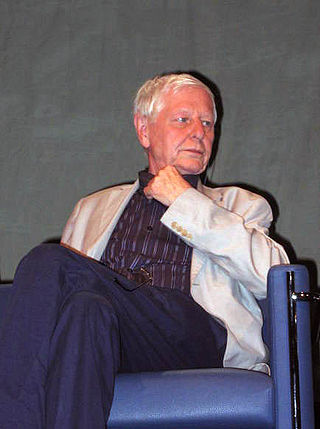
Hans Magnus Enzensberger was a German author, poet, translator, and editor. He also wrote under the pseudonyms Andreas Thalmayr, Elisabeth Ambras, Linda Quilt and Giorgio Pellizzi. Enzensberger was regarded as one of the literary founding figures of the Federal Republic of Germany and wrote more than 70 books, with works translated into 40 languages. He was one of the leading authors in Group 47, and influenced the 1968 West German student movement. He was awarded the Georg Büchner Prize and the Pour le Mérite, among many others.
Haris Vlavianos, is a contemporary Greek poet.

Michael Lentz is a German author, musician, and performer of experimental texts and sound poetry.

Galsan Tschinag, is a Mongolian writer of novels, poems, and essays in the German language, though he hails from a Tuvan background. He is also often described as a Shaman, and is also a teacher and an actor.
Thomas Kling was a German poet.
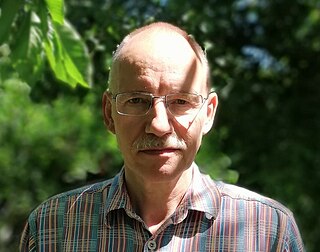
Theo Breuer is a German poet, essayist, editor, translator and publisher.

Heinrich Leuthold was a Swiss poet and translator, described by one critic as the writer "most endowed with genius" of the Munich literary circle, Die Krokodile.
Anise Koltz was a Luxembourgish contemporary author. Best known for her poetry and her translations of poems, she also wrote a number of children's stories. In 1962, she was a cofounder with Nic Weber of the successful literary conference series Journées littéraires de Mondorf in which she has always played a key role.
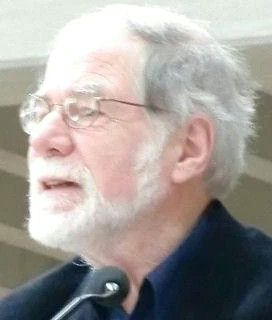
Hans Krieger was a German writer, essayist, journalist of influential weekly papers such as Die Zeit, broadcaster and poet.
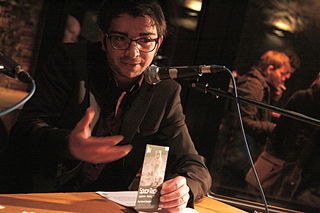
Paul-Henri Campbell is a German-American author. He is a bilingual author of poetry and prose in English and German. He studied classical philology, with a concentration on ancient Greek, as well as Catholic theology at the National University of Ireland in Maynooth and at the Goethe University in Frankfurt am Main.
Das GEDICHT ( ), established 1993, is the largest poetry magazine in the German-speaking world. It was founded by the poet and publisher Anton G. Leitner together with Ludwig Steinherr. Between 1994 and 2007 as well as between 2020 and 2022, Leitner served as its sole editor. Between 2008 and 2019 and 2023, Leitner has edited the annual periodical with changing co-editors.
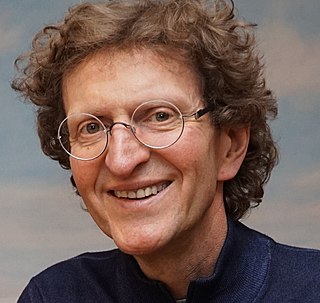
Anton G. Leitner is a German writer and publisher.
Timo Brunke is a German slam poet. He won the 2011 Schubart-Literaturpreis.
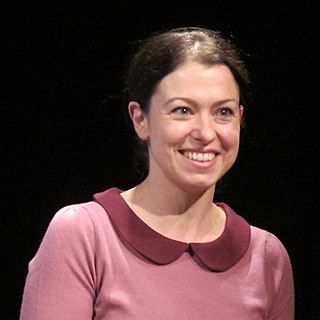
Andrea Heuser is a German writer, poet, translator and literary scholar.

Michael Mack is a German entrepreneur. He is part of the Mack Family, which owns and runs the German theme park Europa-Park.

Jan Wagner, is a German poet, essayist and translator, recipient of the Georg Büchner Prize and Leipzig Book Fair Prize.

Armin Steigenberger is a German poet, novelist, writer, literary editor, and musician. At the end of the 1990s, he was chairman of the Münchner Literaturbüro. He won several literary awards including Irseer Pegasus in 2009.

Walter Hinck was a German Germanist and writer. He was professor of German literature at the University of Cologne from 1964 to 1987.

Stefan Weidner is a German scholar of Islamic cultures, writer, and translator. Due to his contributions to the reception of Arabic and other Middle Eastern literatures, the German scholar of Modern Oriental Studies Stefan Wild described him as a "leading mediator of Middle Eastern poetry and prose into German".
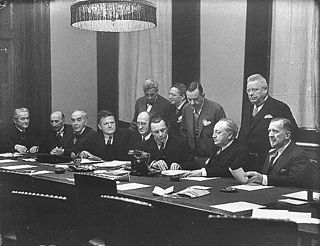
Oskar Loerke was a German poet, prose writer, literary critic and essayist. Loerke was a prominent representative of Expressionism and magic realism in Germany.















